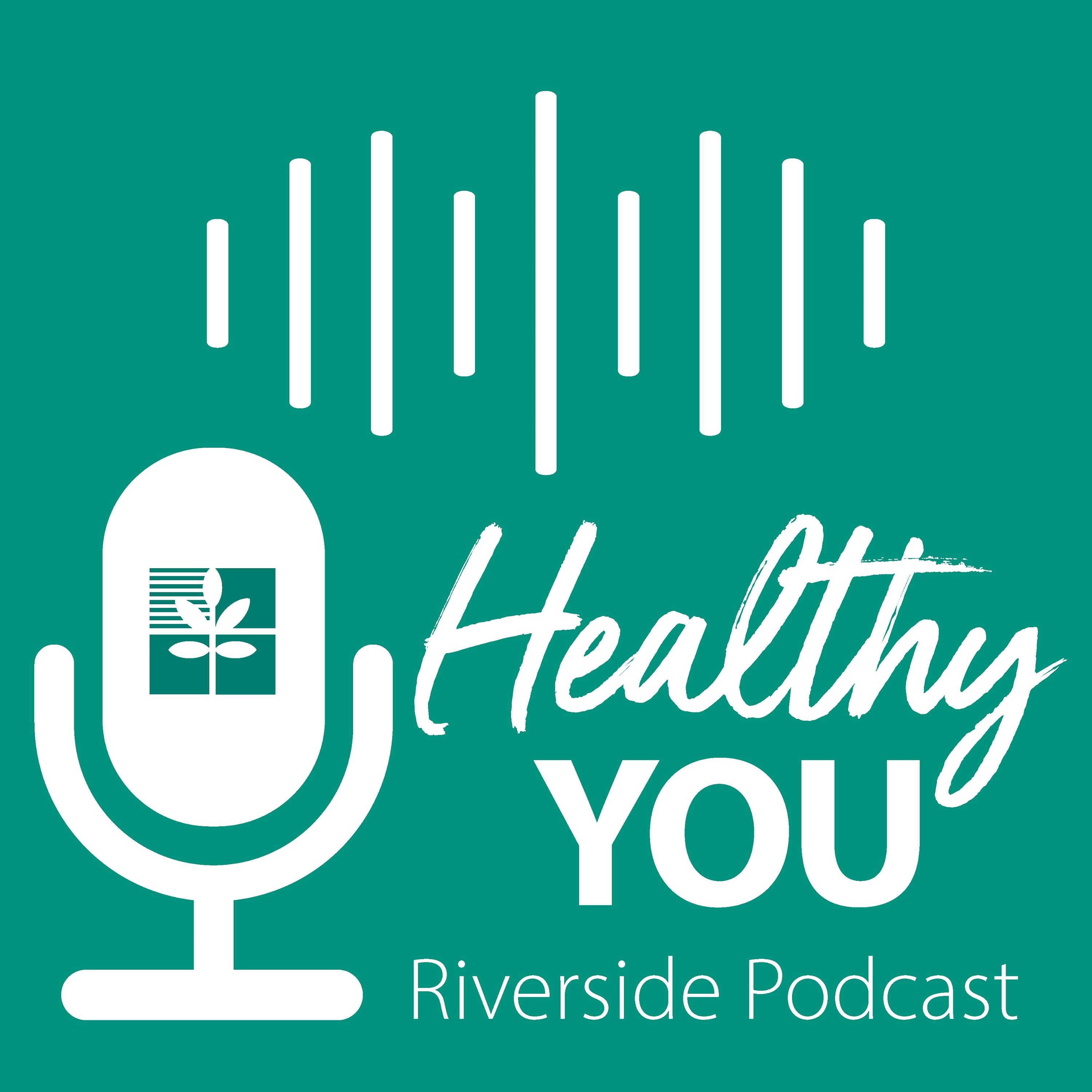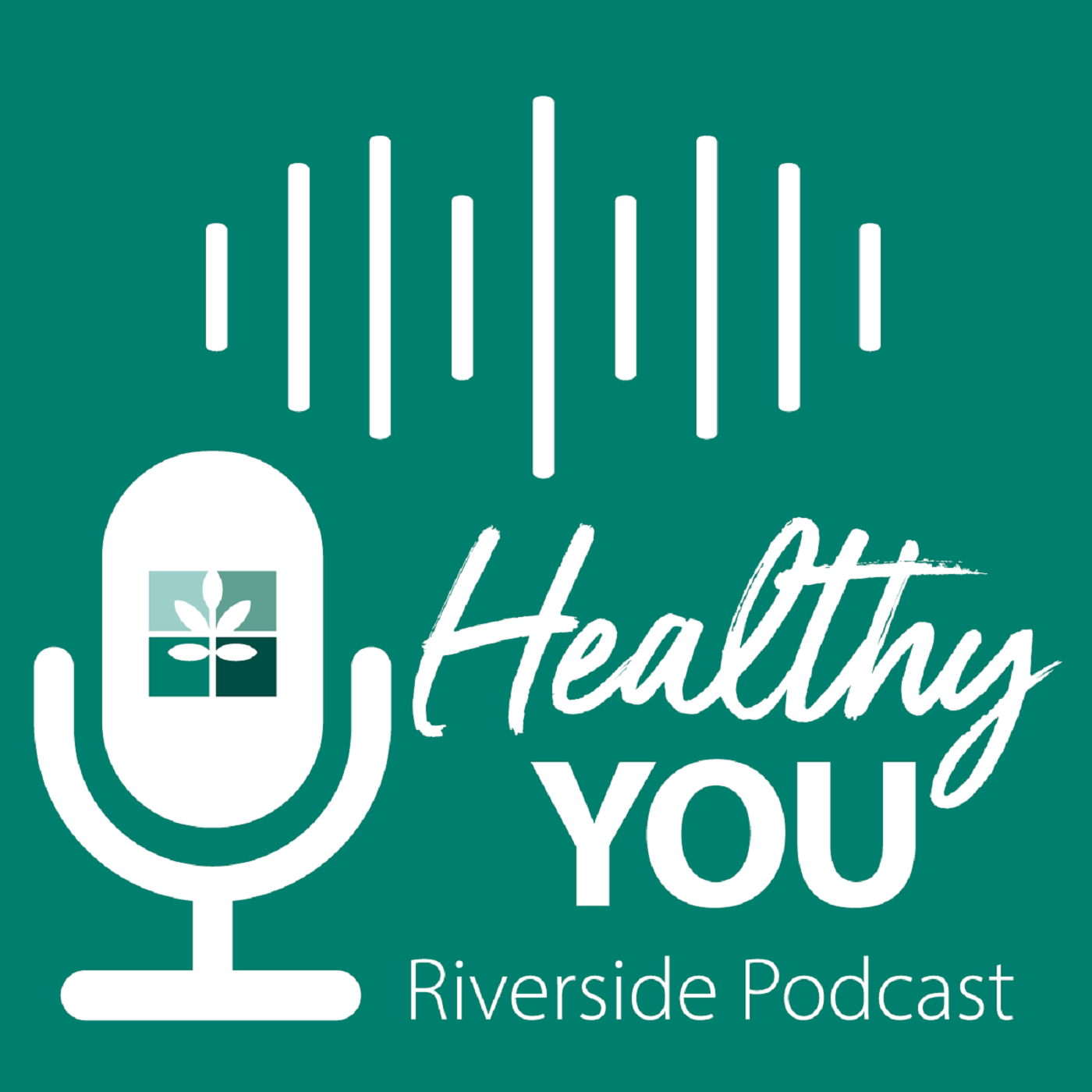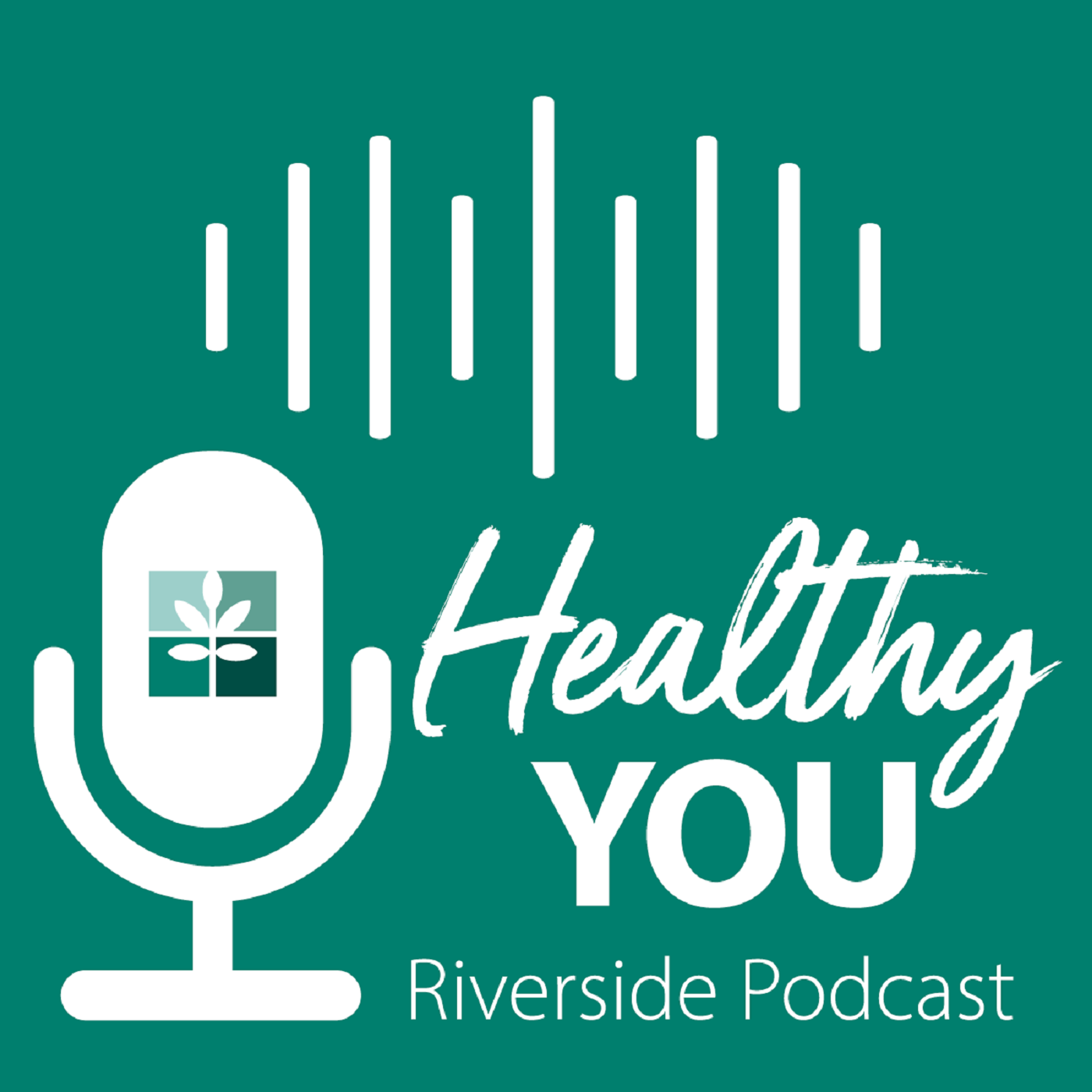Episode Transcript
[00:00:00] Speaker A: From Riverside Health System. This is the Healthy You podcast, where we talk about a range of health related topics focused on improving your physical and mental health. We chat with our providers, team members, patients, and caregivers to learn more about how to maintain a healthy lifestyle and improve overall physical and mental health. So let's dive in to learn more about becoming a healthier you.
[00:00:28] Speaker B: All righty. I am really excited to have in the Healthy You studio today with me and we're going to be talking about impact of alcohol on your health. And I have Dr. Stephen Woodall, primary care physician with Riverside Primary Care, Midtown. How are you?
[00:00:47] Speaker C: I'm doing fantastic, thanks for having great, great.
[00:00:50] Speaker B: Awesome.
All right, so we're going to dive right into today's episode and we're going to be talking about how alcohol impacts your health.
So tell me just a little bit about how alcohol impacts your health.
[00:01:06] Speaker C: Yeah, so there's a lot of negative impacts that alcohol can have on your health. I mean, from your gastrointestinal tract to your liver to your heart disease, diabetes, your nervous system. It really can affect everything and also your mood as well.
[00:01:20] Speaker B: Okay, so let me back up a little bit. What made you decide to pursue a career specifically as a primary care physician?
[00:01:31] Speaker C: Yeah, so I chose primary care because, one, I love talking to people, and that's the name of the game. You get to talk to people, hear about their lives and be a part of their lives. Another thing, I love kind of everything. When I was rotating through med school, there wasn't really one specialty that stood out to me. I just kind of liked it all. And with family medicine, you get to talk to people and you get to do it.
[00:01:50] Speaker B: All right. And I know for me, that relationship with my primary care physician is so important. And I know we're going to be talking specifically today about alcohol and the impact that it has on our body and our health, but your primary care physician really keeps you on track with all of your disease prevention and really doing those annual physicals so you can stay on top of things. So I can see how you were excited because you get to touch and do a little bit of everything, right.
[00:02:20] Speaker C: Just be part of their life and help guide them and direct them and give great advice.
[00:02:24] Speaker B: I can tell you don't like to be bored.
[00:02:25] Speaker C: I did not like to be bored. I did not like to be bored. Can't keep me in one place.
[00:02:31] Speaker B: All right.
I'm a nurse myself, so I have some clinical background as a former critical care nurse and have seen the impact of alcohol on some of our more acute patients.
But specifically, when you think about alcohol and I'm going off script a little bit here, alcohol use, sometimes we don't know what is considered excess consumption for sure. Right. And so what does that look like?
[00:03:00] Speaker C: Yeah. So there are several societies that have their recommendations. There's a United States Preventative Task Force, and then there's the National Institute of Alcohol Abuse and Alcoholism.
Most notably, the recommended use for men, or safe use for men is anything less than 14 drinks in a week and no more than four drinks at a time. And for women, it's less than seven drinks in a week and no more than three at a time. And interestingly enough, they published data that about one in three Americans at some point in their life have had issues with drinking or drinking too much.
[00:03:34] Speaker B: Okay. And I know we talked a little bit when we started, when we started just about some of the impact, but I think it would be helpful for us to dive a little bit further into that.
So if someone is trying to evaluate medically if they're consuming too much alcohol, what would be some of the signs for our layman viewers that you may be consuming too much alcohol?
[00:04:01] Speaker C: That's a great way to ask the question. So the Diagnostic Statistical Manual is what psychologists use to diagnose people. But like you said, for the layfolk, what are some things to look out for? I would say kind of two big grouping of things to look out for to simplify.
[00:04:14] Speaker B: Okay.
[00:04:15] Speaker C: How is it affecting your life, and how are you trying to quit? For example, in terms of how are you trying to quit? Or in terms of, are you feeling like you're drinking too much? Do you feel like you have cravings? Do you feel like you can't stop even if you wanted to? Once you start drinking, do you kind of go overboard? Do you drink too much? And do you see that in a friend, potentially, who you go out to the bar with? They can't just have one drink? And in terms of how it's affecting your personal life, are you showing up to work hungover? Are you getting fired? Are you getting in legal trouble? Is it causing actual problems with your daily life, your work, your social relationships? And most importantly, is it affecting your health? Are you starting to show signs of heart disease or signs of that it's affecting you? And I think these are the big categories. Can you stop if you wanted to? And is it affecting your life?
[00:05:02] Speaker B: Okay, that's a good way of putting it.
[00:05:05] Speaker C: Just kind of simplifying it.
[00:05:06] Speaker B: Yes. I know when you think about alcohol use, I know in my experience, some people think that the stronger alcohols are more detrimental, but beer is not.
[00:05:19] Speaker C: It's true.
[00:05:20] Speaker B: So talk a little bit about that.
I'm not a beer drinker, but there are people who are really into beer, and that's okay. But it is alcohol.
[00:05:32] Speaker C: It's still alcohol.
[00:05:33] Speaker B: And so you do have to monitor consumption as well. But I've been around people that feel like, oh, this is not really you.
[00:05:39] Speaker C: Don'T have to worry about beer.
[00:05:40] Speaker B: You don't have to worry about beer.
[00:05:41] Speaker C: It's funny you mentioned that. I went to medical school in Grenada, and in Grenada, there were a ton of people who you're like, do you drink alcohol? And they're like, no, I don't. And you're like, what about beer? And they're like, yeah, I drink beer, and wouldn't even really consider that alcohol in a lot of cases, and you're 100% correct. Beer is just as detrimental. A lot of people think, oh, as long as I'm able to function and I show up to work on time, I'm not doing anything wrong. But maybe you're having six beers a night. That's still a problem. It doesn't always have to be binge drinking behavior and blacking out. It can just be that daily consistent drinking.
[00:06:11] Speaker B: Absolutely. I know some of the things that you would see physiologically, like yellowing of the eyes, jaundice, the belly. So would you talk a little bit more about blood in the stool? What are some of those things that our viewers and sometimes there are other things going on when people have those types of symptoms, for sure. But I know that one of the things when people see that yellowing of the eyes very classic. It's classic, right?
[00:06:42] Speaker C: Yeah. I would say a lot of the symptoms that people start having and this is variable, this is not cookie cutter, is a lot of stomach upset. Alcohol does irritate the stomach. So you may start off by having some acid reflux, some just upset stomach, loose stools, diarrhea more frequently, and as things progress and it does cause liver scarring or fatty liver disease as it progresses into cirrhosis. And in bad cases, you do get the yellowing of the eyes, your stomach starts to bloat, and then some people do have blood in the stool.
[00:07:12] Speaker B: All right, that's good information.
What do you think are some other things for our viewers to really understand about alcohol consumption, especially right now, around the holidays, we're doing a lot of celebrating, and some may be consuming a lot of spirits.
What are some pearls or some things you think that our viewers should keep in mind?
[00:07:35] Speaker C: Definitely watch out. I'm sure many people have heard about the condition called holiday heart. It's essentially when people binge drink over the holidays, maybe over a weekend, you drink with family and you drink more than you might normally on a day to day or monthly basis. And people who are already prone to heart disease or have heart arrhythmias are at much higher risk of having an arrhythmia. And that's what we sometimes call holiday heart, where you binge drink, you have an arrhythmia, you show up to the hospital, and then they have to help you out. I read, interestingly that up to 63% of heart rhythms that are abnormal during the holiday season can be attributed to binge drinking. Really? Up to 63%, which is a lot.
[00:08:16] Speaker B: Okay. Binge drinking when you think about alcohol and toxicity? Because I don't think people think sometimes that they can have a demise from alcohol consumption. You think about that more so when you think about some of the other drugs.
[00:08:34] Speaker C: For sure.
[00:08:34] Speaker B: Talk a little bit about that, because I've heard about that, whether it's in college environments or student environments where they're being challenged and they take in more alcohol. And there have been deaths associated with that.
[00:08:47] Speaker C: Shockingly, alcohol related deaths are the fourth leading cause of preventable disease in the US. Fourth leading, yeah. And college campuses are definitely prone to binge drinking alcohol consumption. That's on the heavier side, of course. There are people who unfortunately die from true alcohol intoxication where there's just so much in your body, you go into a coma. But then there's, unfortunately, the people who kind of have the slow demise, where that heavy buildup of alcohol after years and years of drinking affect the body, and eventually you can die from secondary causes of the alcohol consumption.
[00:09:21] Speaker B: Do you think there is an association with family history?
[00:09:25] Speaker C: Definitely.
[00:09:26] Speaker B: And individuals being more prone to that?
[00:09:28] Speaker C: For sure. There's definitely a huge genetic component. Impulsivity definitely plays a role in it. People who have a more impulsive or rambunctious personality may find themselves leaning towards alcohol or having harder time controlling their alcohol consumption, but genetics definitely plays a huge role. And then family exposure as well.
[00:09:48] Speaker B: Okay, that's good to know. So those predispositions could be there, whether it's alcohol, food, other things, right?
[00:09:56] Speaker C: Yeah, anything you can get addicted to. We have our vices.
[00:10:00] Speaker B: Absolutely. Mine would be food.
I know that sometimes I'll hear when individuals consume too much alcohol, they feel like, hey, if I just hydrate myself and even using these new infusions, is there any benefit to that? Is there any validity to hydrating and replenishing electrolytes even?
[00:10:25] Speaker C: Definitely. Hydration definitely is important when you're drinking to protect yourself. It's not going to necessarily fix or reverse you being drunk. Once the damage is done, you just have to sober up. But staying hydrated can definitely be helpful because not only are you urinating more frequently, but the water helps kind of dilute it a little bit. But by no means is it a fix. No means is it a fix.
[00:10:46] Speaker A: Okay.
[00:10:47] Speaker B: That's good feedback.
All right, well, I think I've kind of asked everything that I could think of and what I take away and what I hope our viewers take away is be safe.
[00:11:00] Speaker C: Definitely be safe.
[00:11:01] Speaker B: Right. And over consumption of anything is just.
[00:11:04] Speaker C: Not really I think that's a good way to put it. Mindfulness and balance are definitely good in many things, if not all things. And just watch out during the holiday season. Also, people who may not drink regularly but show up to family, maybe their tolerance is a little lower than they think it might be, and they might get themselves into trouble. So just be careful at the bottom line.
[00:11:25] Speaker B: Yes. And then before we wrap up here, is alcohol consumption or alcohol abuse on the rise?
[00:11:34] Speaker C: I would say it's always been there. I think it'll always be a thing. Humans love alcohol since the beginning of time, so it's kind of difficult to say. I would say that marketing towards alcohol is definitely interesting, as you all may have seen, when you go to the stores, there's tons of T shirts about, oh, I drink wine at the end of work, and kind of a lot of, like, funny wine jokes. But in a lot of cases, it's kind of serious because people see that and it kind of normalizes. Like, oh, yeah, it's okay to have a couple of glasses of wine each night or beers. And it may be concerning to some people and may cause some issues.
[00:12:07] Speaker B: So if somebody wanted to reach out to you, your primary care, so you support across the gamut as it relates to health care, but if they wanted to reach out to you specifically, how would they do so?
[00:12:18] Speaker C: Yeah, so they can reach out through my chart, through Riverside.com, or they can look up the number online. There's tons of options to treat alcohol abuse or alcohol misuse, from therapy to medications, there's a lot of options out there. So definitely reach out if you feel you or a loved one are in need of some help.
[00:12:37] Speaker B: Right. And I have to ask this question.
In my past experience, I knew someone who had a history of alcoholism, and they went through recovery and they started consuming non alcoholic type beer, but they would become intoxicated, and I never understood why. Is there some sort of potentially psychological association with those products, or is it really non alcoholic? For sure, those things.
[00:13:11] Speaker C: It's an interesting phenomenon. I mean, on the bottle, there is like, a very low percentage of alcohol. So I guess theoretically, if you consumed a ton of o duals I didn't want to call the name, but interestingly enough, some people will kind of get a placebo high where you're like because they're so it's kind of more psychological than actually physiologic. But I guess if you consumed enough, I mean, maybe.
[00:13:37] Speaker B: Thank you.
[00:13:39] Speaker C: There's definitely a smidgen in there. Yeah.
[00:13:41] Speaker B: Okay. That makes sense.
[00:13:43] Speaker C: I think there's a smidgen.
[00:13:44] Speaker B: Well, thank you so much. Please come back, see us again. It was a pleasure having you. Anything else you'd like to say before.
[00:13:52] Speaker C: We no, that's all. Just be careful out there and have fun.
[00:13:55] Speaker B: Have fun, be safe. Thank you.
[00:13:57] Speaker C: No problem. Thank you.
[00:14:00] Speaker A: Thank you for listening to this episode of Healthy Youth. We're so glad you were able to join us today and learn more about this topic. If you would like to explore more, go to Riverside online.


